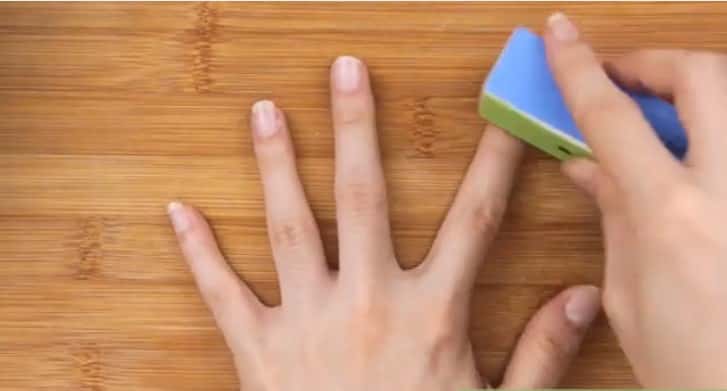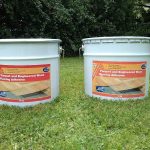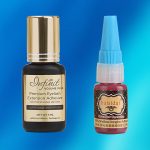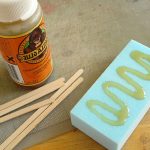Glue on nails, also known as press-on nails, are artificial nail enhancements that can be applied at home with minimal effort and time investment.
They come in a variety of shapes and sizes, allowing you to customize your look with ease.
People often opt for glue-on nails when they want a quick way to get their nails looking perfect without having to go through the hassle of a salon visit or paying for expensive nail treatments.
Glue on nails are also an excellent option for those who want to switch up their look often, as they can be removed just as easily as they are applied.
Types of Glue On Nails – Adhesive Tabs, Liquid Glue, and Pre-Glued
Contents
- 1 Types of Glue On Nails – Adhesive Tabs, Liquid Glue, and Pre-Glued
- 2 Advantages of Glue On Nails
- 3 Disadvantages of Glue On Nails
- 4 Will Glue On Nails Come Off In The Shower?
- 5 Tips for Keeping Your Glue On Nails Secure in the Shower
- 6 How To Remove Glue On Nails From Skin After Being Exposed To Water
- 7 Conclusion
If you’re tired of applying glue and waiting for your nails to dry, there’s a solution.
Many companies now sell pre-glued nails, also known as “press-on nails.” They’re adhesive tabs that you press on your nails, similar to how you apply temporary tattoos. Another great option is liquid glue.
These glues dry up very quickly, allowing you to apply as many coats as you want. Finally, adhesive tabs are adhesive tabs that you place on your nails.
They’re similar to liquid glues, except that they’re less messy. Overall, these three types of glue are excellent alternatives to applying glue yourself.
Advantages of Glue On Nails
One major advantage of using glue on nails is that it provides an affordable alternative to salon manicures without sacrificing quality or longevity.
Most sets will last anywhere from one week to one month, depending on how well you take care of your hands and how often you use them.
This makes them perfect for special occasions where you want your manicure to last longer than just one day but don’t want to spend too much money.
Additionally, since most sets come in multiple sizes and shapes, you can easily create custom looks that will fit any occasion.
Disadvantages of Glue On Nails
While there are many advantages associated with using glue on nails, there are also some potential drawbacks that should be taken into consideration before making a purchase.
One major disadvantage is that these types of enhancements can damage your natural nail beds if not applied correctly. This can lead to weakened or cracked nails, which can be difficult to repair.
Additionally, since most sets only last up to one month, it may not be worth it if you plan on wearing them frequently throughout the year.
Finally, some people may find the application process difficult if they don’t have experience working with adhesives or fake nails in general.
So, it’s important to read instructions carefully before attempting any type of application process.
Will Glue On Nails Come Off In The Shower?
The short answer is yes—glue on nails will come off in the shower if exposed to water for extended periods of time.
This is because most glues used in press-on manicures aren’t waterproof, so they won’t hold up against extended exposure to water or steam from hot showers.
If you plan on wearing your glue-on manicure while bathing, then it’s important to take extra precautions, such as wearing gloves during bathing until after drying off completely from your shower session.
Tips for Keeping Your Glue On Nails Secure in the Shower
There are several tips you can follow in order to keep your glue-on manicure secure while showering/bathing:
Prioritize drying time
Make sure your hands are completely dry before applying any type of adhesive product, such as liquid glue or pre-glued tabs.
This will help ensure that the adhesive sticks properly and won’t come off due to moisture during bathing or showering sessions.
Use gloves
Wearing gloves while showering helps protect both your skin and natural nail beds from water exposure, which could weaken adhesives over time, leading them to come off prematurely during bathing sessions.
Avoid hot showers
Hot showers tend to loosen adhesives quicker than cold showers, so try opting for cooler temperatures when possible.
How To Remove Glue On Nails From Skin After Being Exposed To Water
Keep your nails clean and dry while working or after coming into contact with water, and do not let them get exposed to water for long periods of time.
If your nails are glued with glue, there will be glue residue on your skin around the nails. This glue residue on your skin can be easily removed with lemon and sugar.
Squeeze a lemon and dip a cotton ball in lemon juice. Rub the cotton ball on the glue residue on your skin, and the glue residue on your skin will fall off.
Mix sugar with lemon juice and rub on the glue residue on your skin. The glue residue on your skin will fall off within 5 minutes.
Also Read: What is the Best Flooring Glue?
Conclusion
In conclusion, glue can be a useful skill to have.
It’s much easier than gluing regular nails on, and it’s useful on a daily basis. Glue on nails can also improve people’s appearance.
While some people might see Glue on Nails as a weird trend, others see it as a way of expressing themselves.
At the end of the day, glue on nails can improve people’s quality of life and appearance.






